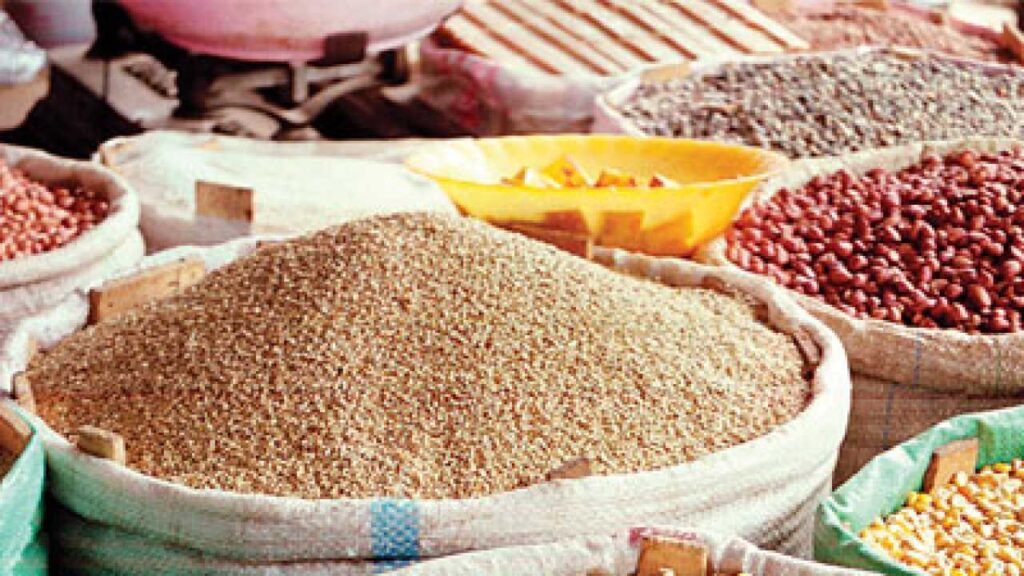- Food Inflation Shoots up by 1.41 per cent in 30 days
Nigeria’s Inflation Rate has hit 26.72 per cent within the first nine months of the year. Indicative of a 0.92 per cent between 25.80 per cent recorded in August 2023 and September 2023.
On a month-on-month basis, the headline inflation rate in September 2023 stands at 2.10 per cent, a decline of 1.08 per cent from 3.18 per cent recorded in August 2023. This implies that in September 2023, the rate of increase in the average price level was less than the rate of increase in the average price level in August 2023.
However on a year-on-year basis, the headline inflation rate was 5.94 per cent points higher compared to the rate recorded in September 2022, which was 20.77 per cent. This implies that while it declined from the previous month it increased between September 2022 and September 2023
This was contained in the September 2023 Consumer Price Index (CPI) report by the National Bureau of Statistics (NBS).
“The percentage change in the average CPI for the twelve months ending September 2023 over the average of the CPI for the previous twelve-month period was 22.90 per cent, showing a 5.47 per cent increase compared to 17.43 per cent recorded in September 2022.”
Top Five Contributors
In its inflation report, the NBS said the contributions of items on the divisional level to the increase in the headline index on a month-on-month basis are Housing, Water, Electricity. Gas & Other Fuel contributed 0.35 per cent, Clothing & Footwear with 0.16 per cent, Food and non-alcoholic Beverages with 1.09 per cent, Clothing & Footwear with 0.16 per cent and Alcoholic Beverage, Tobacco & Kola contributed 0.02 per cent.
On a year-on-year are Food and non-alcoholic Beverages at 13.84 per cent, Housing Water, Electricity, Gas and other fuel contributed 4.47 per cent, Clothing and footwear at 2.04 per cent and Transport at 1.74 per cent and Furnishings and household Equipment and maintenance with 1.34 per cent,
Further breakdown of the report reveals that urban inflation rate for the review period stood at 2.24 per cent on a month-on-month basis, a decline of 1.05 per cent from 3.29 per cent recorded in August 2023. On a year-on-year basis, in September 2023, the Urban inflation rate was 28.68 per cent, 7.43 per cent points higher compared to the 21.25 per cent recorded in September 2022.
Rural inflation rate for September 2023 stood at 1.96 per cent down by 1.12 per cent points compared to 3.08 per cent in August 2023. On a year-on-year basis, rural inflation stood at 24.94 per cent, 4.62 per cent points higher compared to the 20.32 per cent recorded in September 2022.
Food Inflation
The Food inflation rate for September 2023 on a month-on-month basis, was 2.45 per cent, this was 1.41 per cent lower when compared to 3.87 per cent recorded in August 2023. According to the report, the decline in Food inflation on a month-on-month basis was attributed to the fall in the rate of increase in the average prices of Potatoes, Yam and other tubers, Bread and cereals, Fruits, and Fish.
On a year-on-year basis, food inflation stood at 30.64 per cent, 7.30% points higher compared to 23.34 per cent recorded in September 2022. The rise in Food inflation on a year-on-year basis was attributed to the increases in prices of Oil and fat, Bread and cereals, Potatoes, Yam and other Tubers, Fish, Fruit, Meat, Vegetables and Milk, Cheese, and Eggs.
“The average annual rate of Food inflation for the twelve months ending September 2023 over the previous twelve-month average was 25.65 per cent, which was 6.29 per cent points increase from the average annual rate of change recorded in September 2022 (19.36%m per cent).”
Core Inflation
Core Inflation now referred to as “All items less farm produces and energy” stood at 2.22 per cent in September 2023 from 2.18 per cent in August 2023, up by 0.05 per cent. On a year-on-year basis, it moved upward by 4.35 per cent from 17.49 per cent recorded in September 2022 to 21.84 per cent in September 2023.
“The average twelve-month annual inflation rate was 19.55 per cent for the twelve months ending September 2023; this was 4.48 per cent points higher than the 15.07 per cent recorded in September 2022.”
Nigeria has continued to battle the tide of inflation unsuccessfully. Several policies to break the back of inflation have proven abortive. In July, the Central Bank of Nigeria (CBN), raised its benchmark lending rate to 18.75 per cent.
The bank said, “hiking the interest rate has made a lot of difference in moderating the rate of inflation”.
Another possible contributing factor to the steady increase in inflation is the collapse of the exchange windows into the Investors and Exporters (I&E) window. The move, according to the apex bank, is part of the Nigerian government’s efforts to improve liquidity and stability in the market and attract foreign investors into the Nigerian economy.
The CBN also recently withdrew from intervention programme to strictly advisory role as a means to stir internal growth within ailing sectors of the economy.







